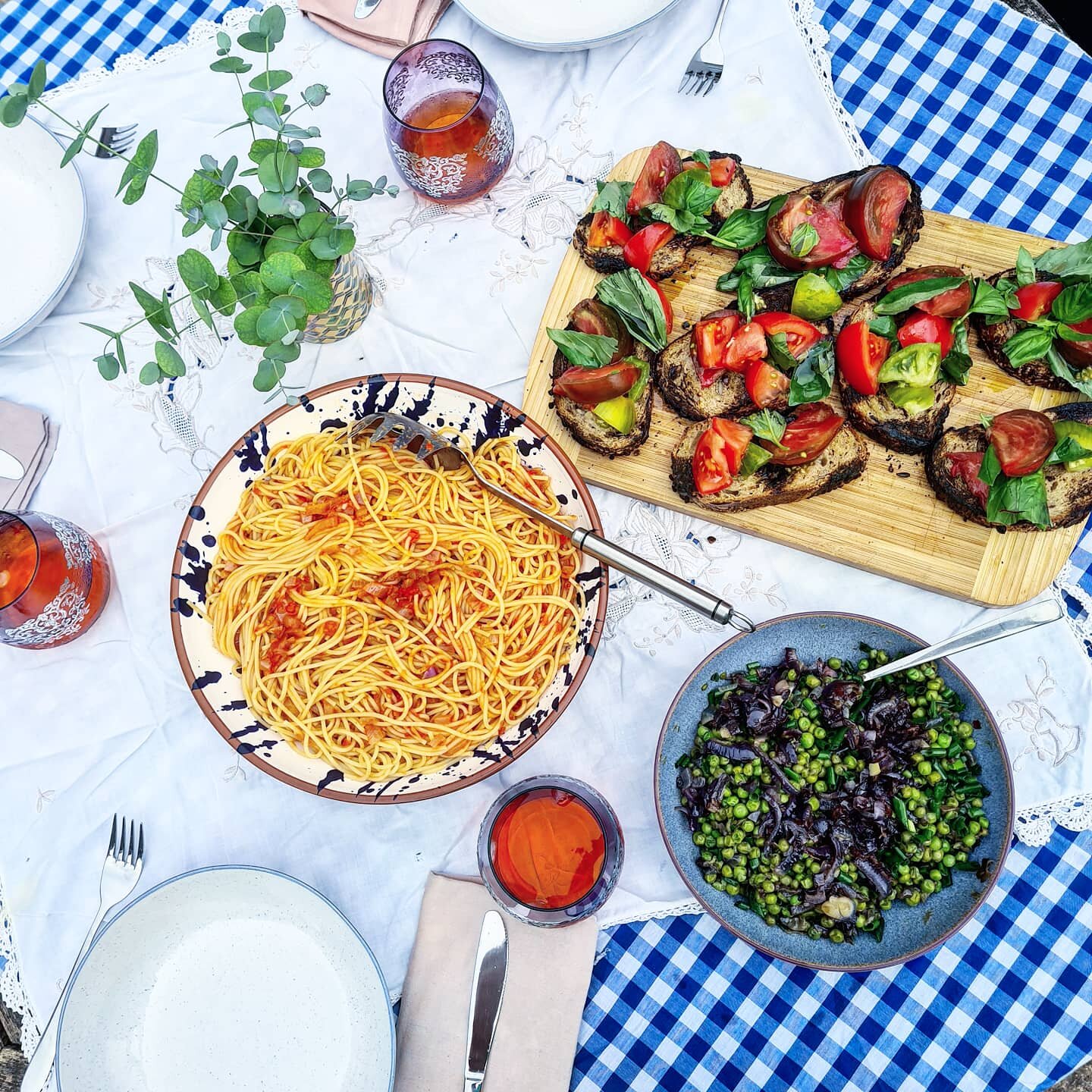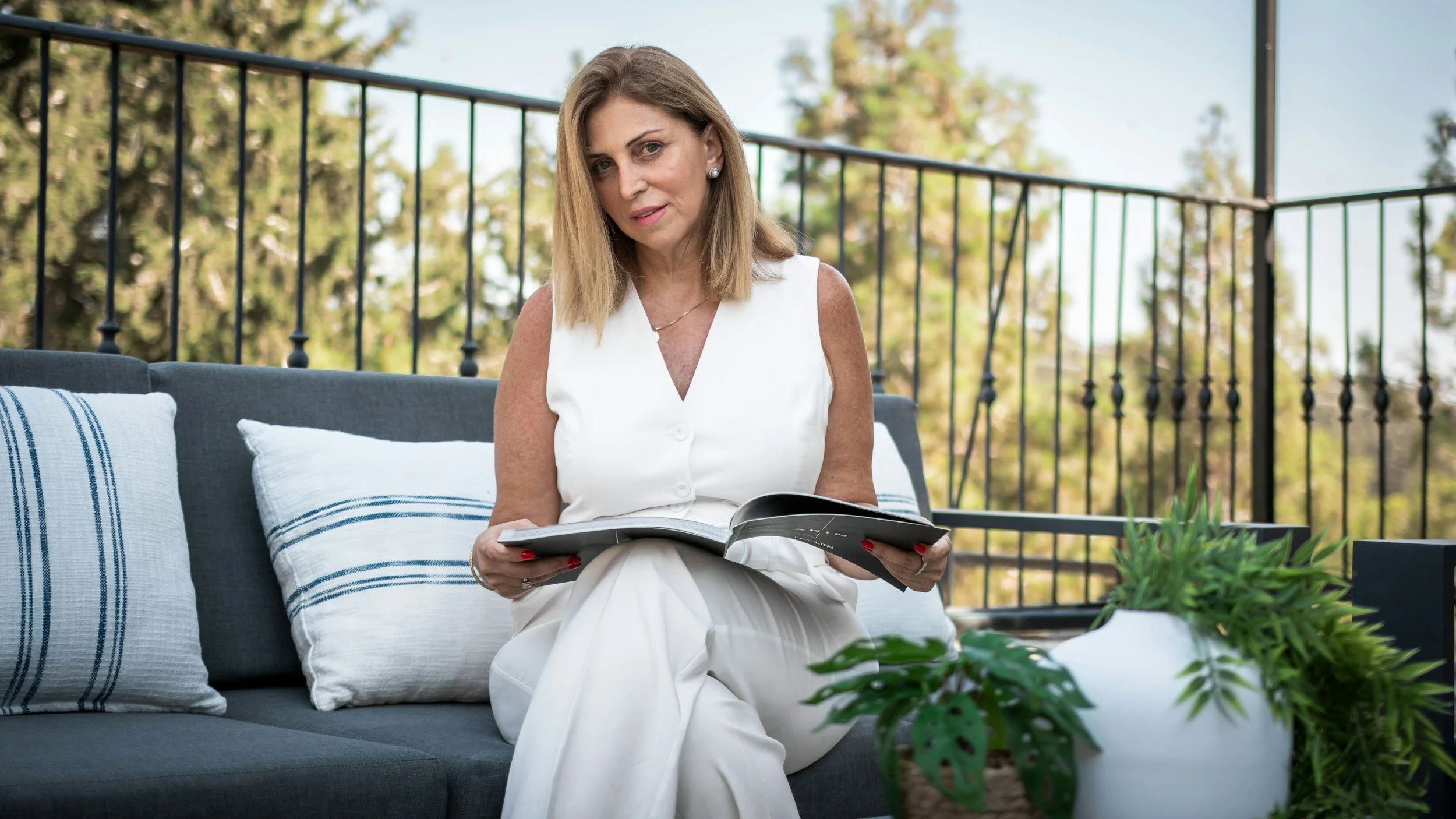Interview with Megan Ponting of Feeding the Rest
Megan Ponting is a private chef and total food fanatic. She grew up in Abu Dhabi, part of a Palestinian family and on a delectable diet of Arabic food. When she came to Britain, she discovered it was difficult to find the foods she had grown up on, so on moving to York in 2016, she decided to do something about that!
She hosts intimate supper clubs around York, serving up flavour-packed Middle Eastern or Tuscan influenced menus. Her aim is to bring the food she knows and adores to her local community and beyond.
This month, she is teaming up with Fozia Nasir on the upcoming ‘Mamma Makes’ project. The soon to be launched e cookbook offers a ‘rich snapshot into multicultural Britain’. Chefs and foodies spanning four continents have provided family recipes and shared the stories of the people and places behind them.
We spoke about Megan’s influences, the foods she loves to cook and eat and her frustrations at the cultural appropriation of some of her favourite dishes.
B: How did you learn to cook?
M: I really really like food! I always remember growing up in the Middle East, whenever we had an occasion, whatever the celebration, it was always centred around food, even funerals. In Islam, funerals are three days long and each day someone will gift the grieving family a whole lamb, with different sauces, types of rice etc.
Every religious ceremony or celebration was always focused on the food. Before I went to University in Edinburgh, my mum started to show me how she did things in the kitchen. In my second year, I started to experiment with recipes. I was lucky enough to live with friends who also enjoyed cooking, so we’d take turns cooking and share stories and recipes. It all developed from there.
B: What about Italy?
M: I actually lived in Italy for a while. I lived and work in a monastery, where a little old lady was the cook. She was a phenomenal cook, making some incredibly flavourful dishes for over sixty people at a time! You had to watch her and write it all down for yourself, as she never followed a recipe book. There is a large Italian community in York, so those influences have formed an important part of the supper clubs.
B: Could you tell us a little about the Levantine food you are so passionate about?
M: There is not much authentic Levantine food in the UK unfortunately. It is very simple cooking. You use what you have access to and cook seasonally. That is actually also what appealed to me about Tuscan food.
Lebanese flat bread is always on the table, as is Taboon bread (imagine a fluffy naan bread!). We also eat a lot of foods like lamb shish kebabs, grilled tomato and onions and tabbouleh. There is a traditional sauce called Toum, which consists of pure garlic with lemon juice and egg white, which forms a paste.
B: Sounds delicious! So, could you tell us where the idea for your first supper club came from?
M: I was working in a local café as chef at the time. A friend said a local yoga teacher wanted to do a fundraiser supper club, but didn’t know any chefs who do that sort of thing in a unique way. I thought I could bring something different to the table so got in touch and we started planning. The yoga teacher hosted a class for the first part of the night and then we had the food after that. It grew from there!
B: What is your favourite dish?
M: That is such a difficult question, I just like to eat so much! If I HAD to pick I would say my favourite thing to cook would be pasta. I would go with a very simple fresh and quick recipe I learnt in Tuscany called Spaghetti Aglio, Olio and Peperoncino. The recipe uses garlic, olive oil and dried chill with spaghetti – it is so simple, but so comforting!
My favourite food to eat would be chicken shawarma, with toun, pickles and chips - in an authentic Lebanese restaurant.
B: I read a post on your blog about the appropriation of food. Could you tell us a little more about your feelings around this?
M: I’ve become a lot more vocal about it recently, as I never had the words to articulate how I felt before. I was referring particularly to things like shawarma and hummus. These recipes have been going for centuries in the Middle East. With hummus, some families make it with lemon, some with garlic, some with cumin. It varies region to region but also household to household. However, as soon as you remove the chickpeas from the recipe, it simply isn’t hummus! The word ‘hummus’ MEANS chickpea in Arabic.
With shawarma, if you have not been shown how to make a proper shawarma by an Arab, you are likely not making an actual shawarma, but just a spiced meat sandwich!
When a non-Arab audience starts to forget where these dishes come from and starts to change the recipes without changing their names, this erases an entire culture. I think it is about showing a respect for the heritage, the cuisine and the culture of a dish.
B: How did you become involved with Mamma Makes?
M: Fozia approached me about the project. All proceeds will be going to the NHS, which is such a great cause. With everything going on, NHS staff have been incredible.
We are so lucky that we live in a multicultural society in the UK. When I grew up in UAE there were more migrants that UAE nationals and it was an amazing experience to grow up around that. My best friend is Polish, another is Kurdish Iraqi. We all grew up together, we learnt from each other’s cultures. I find it mind boggling that some people do not appreciate that multi-culturalism.
This cook book is a much needed thank you and appreciation of those cultures that are helping to diversify our plates and our societies!
B: What’s next for you?
M: I am currently on maternity leave, so I will be thinking about what I will do when I go back to work and planning from there. Do I fill my weeks with supper clubs or do some more of the fine dining, or more of the door step deliveries I started in lockdown?
My ideal scenario would be to carry on the supper clubs and private dining, promoting Levantine food. It really is one of the most delicious and healthiest cuisines. We use so many vegetables and so much of it can be made vegan. It is really something that I want to share! I love having the chance to talk to people about it, about Levantine food and what each dish meant to me, when I was growing up.
For further information:
www.mammamakes.org - out 16th September 2020
Read our article to find out more about the Mamma Makes charity e-cookbook.















